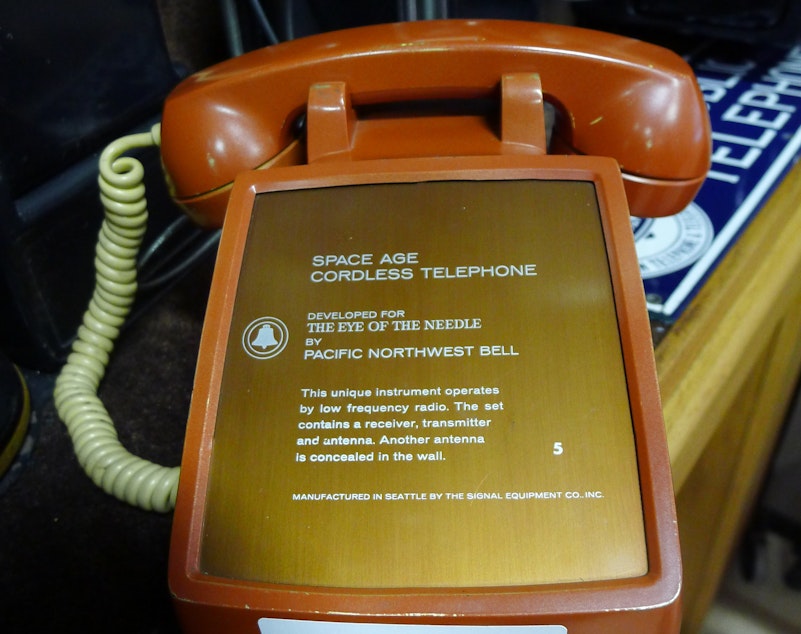1962: Cordless Phone And Other Tech Innovations Unveiled At Seattle World’s Fair

The 1962 Seattle World's Fair introduced technological innovations that seemed out of reach at the time, but would eventually become a part of every day life. Some of the ground breaking gadgets unveiled included a pager, a cordless phone and something called a computer.During the World’s Fair, the future was front and center. Astronaut John Glenn had just orbited the earth and NASA was ready to launch Telstar, the first communications satellite that could both send and receive signals. When Telstar first launched, on July 10, 1962, only audio signals of phone calls were bounced between Earth and space.
“A few weeks later there was a television bounce,” says Historylink historian Alan Stein.“That gave people in Europe a chance to see scenes of America and for Americans to see scenes from Europe.”
Better yet, it broadcast scenes from the fair.
Historylink historian Paula Becker co-wrote “The Future Remembered – The 1962 World’s Fair and its Legacy” with Stein. She says that first live international TV broadcast was a very big deal because it was broadcasting scenes like Rockefeller Center and Mt. Rushmore. “To have the fair be one of those American iconographic things that was broadcast was really important,” she says.
Satellite technology was definitely 21st century. The fair also promised technological changes for daily living here on Earth.
In the Bell Systems Pavilion, lovely young ladies informed fairgoers that just dialing a phone number was old-fashioned. Call-waiting, call-forwarding and phones that had their dials replaced with push buttons were around the corner. And for those on the go, there was the Bell Boy, later known as the pager.
“It was this big, hurky device, about the size of a TV remote and about twice as heavy,” says Stein. “And all it did was rattle in your pocket when somebody wanted to contact you.” But it was brand new. Of course, cellphones made pagers obsolete but those original models are still in town. You can find them at Seattle’s Museum of Communications.
Museum volunteer Rich Barger worked at regional phone companies for 45 years. Barger says Seattle World’s Fair officials were the first to be issued pagers. “It showed the public ‘Hey, here’s what’s coming. It’s going to be available very shortly.’ So it was a good marketing ploy,” says Barger.
The museum also displays the first cordless phones. Knute Berger is the author of “Space Needle: The Spirit of Seattle.” He says the devices were invented to solve a problem at the revolving restaurant on top of the Space Needle. “They wanted to have phone service at your table because that’s what every great fancy restaurant had,” says Berger. “But because the restaurant rotated, having cords wouldn’t work. So the phone company, Pacific NW Bell, invented a form of wireless phone that connected the phone to a radio transmitter that then connected you with an operator,” explains Berger. “And you could have a cordless phone at your table while you were rotating and you could make a call.”
New technology was also featured in General Electric’s “Home of the Future” exhibit. Perfectly coifed homemakers showed off conveniences that included a push-button sink, remote-control draperies and a computer with access to an entire library. All things, it turned out, homeowners could soon have.
Even though this World’s Fair was billed as “space age,” Paula Becker says the technological dreams presented were really quite grounded. “At the 1962 Seattle World’s Fair the future felt more like a road we were already on,” she says. “So it’s less foreign, less predictive, and more like something we’re on our way to.”
This story was produced by KUOW and Jack Straw Productions in a partnership to present radio stories about the 50th anniversary of Seattle’s World Fair.
